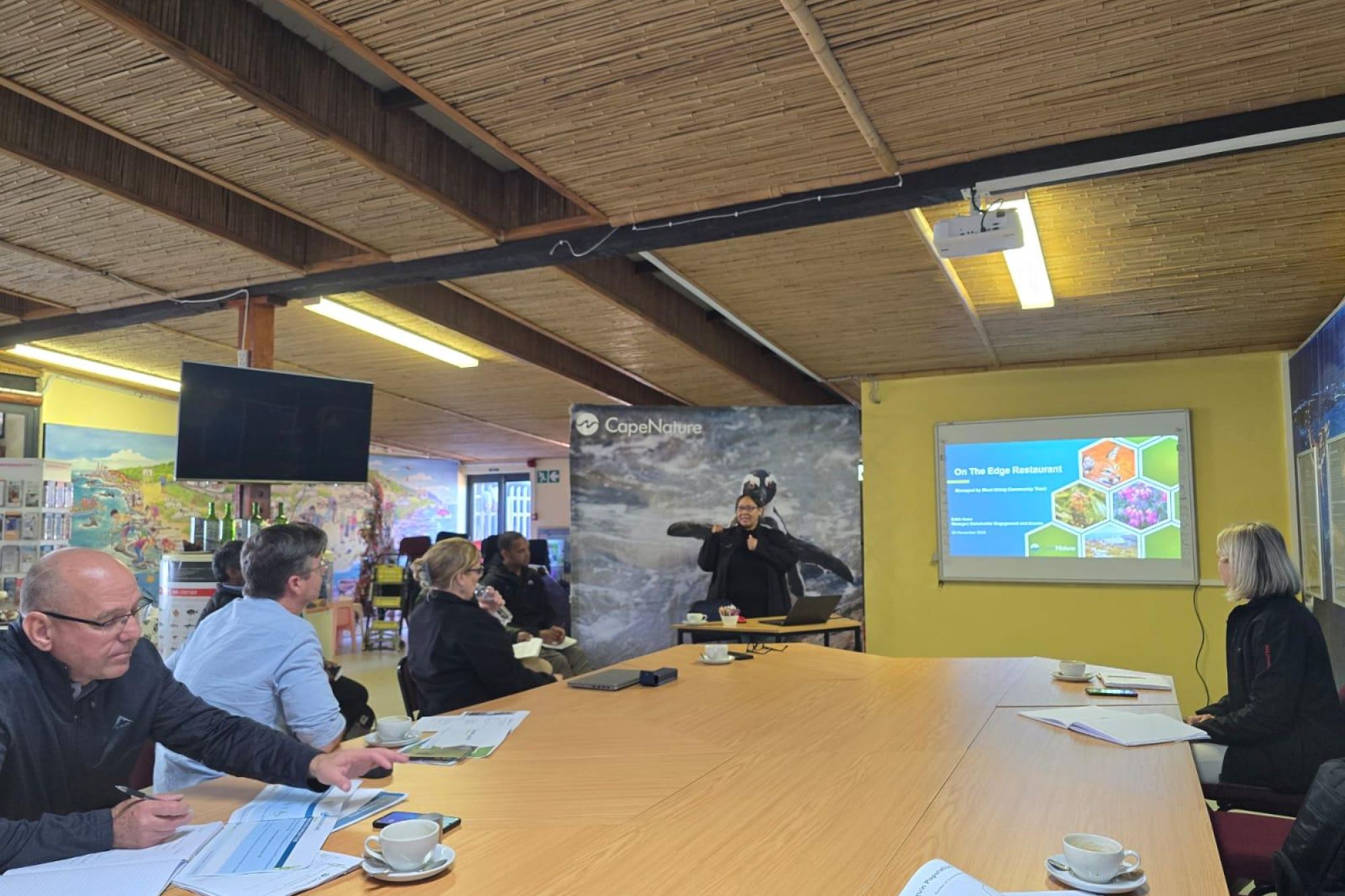
Western Cape Standing Committee visits Stony Point
Last month, the Western Cape Parliament Standing Committee on Local Government, Environmental Affairs and Development Planning visited the Stony Point African Penguin colony. Presentations were given by CapeNature colleagues on the history of the site, penguin population trends, challenges and colony management, and socio-economic benefits of Stony Point and the associated On the Edge Restaurant respectively.
The Mooi Uitsig Community Trust has successfully managed the restaurant for the past 10 years and project has grown from strength to strength. A guided walk was led by a CapeNature field ranger, and the presentations were well received with valuable interactions on the topics discussed. Also in attendance was local Ward Councillor Theresa Els.
In October 2024, the International Union for Conservation of Nature (IUCN) reclassified the African Penguin from Endangered to Critically Endangered, underscoring the species’ extremely high risk of extinction in the wild. CapeNature colonies currently support approximately 50% of the remaining African Penguin population, especially since the population at St Croix (in Algoa Bay in the Eastern Cape) has declined significantly.






